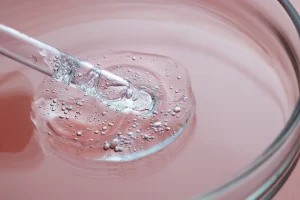When shopping for skincare, many of us are drawn to words like natural, organic, or plant-based. On the flip side, some are wary of synthetic ingredients, often associating them with harsh chemicals or artificial additives. But when it comes to effective skincare, is natural always better? Or do synthetic ingredients have a rightful place on your shelf?
At Biocoslab, where science meets beauty, we believe that understanding the role of both natural and synthetic ingredients is key to making informed skincare choices. Let’s break down the truth behind the labels—and discover what really matters for healthy, radiant skin.

The Allure of Natural Ingredients
Natural ingredients are derived directly from plants, minerals, or animals, often with minimal processing. Examples include:
- Aloe vera
- Green tea extract
- Jojoba oil
- Chamomile
- Shea butter
Pros:
- Often rich in antioxidants and vitamins
- Biodegradable and environmentally friendly
- Generally gentle on sensitive skin (though not always)
Considerations:
- Natural doesn’t always mean non-irritating—some plant extracts can cause allergic reactions
- Potency can vary due to seasonal or geographic differences
- Shorter shelf life unless preserved properly

The Science Behind Synthetic Ingredients
Synthetic ingredients are created or modified in a lab to mimic or enhance the effects of natural compounds. Examples include:
- Hyaluronic acid (often lab-derived)
- Retinoids (vitamin A derivatives)
- Peptides
- Synthetic ceramides
- Preservatives like phenoxyethanol
Pros:
- Highly stable, with consistent potency and longer shelf life
- Can be more effective for targeting specific skin concerns (e.g., wrinkles, acne, pigmentation)
- Less risk of contamination compared to raw plant extracts
Considerations:
- Misconceptions around “chemicals” can lead to unnecessary fear
- Overuse or misuse of certain synthetic actives can cause irritation if not formulated properly

What Really Matters: Safety, Efficacy & Formulation
Whether natural or synthetic, the most important factors in a skincare product are:
✅ Safety
Every ingredient, regardless of its origin, should be safe for use on the skin. At Biocoslab, all raw materials go through strict safety testing and dermatological evaluations before being included in a formulation.
✅ Efficacy
Does it work? That’s the real question. Many synthetic ingredients are scientifically proven to treat skin concerns effectively—like niacinamide for brightening or salicylic acid for acne. Likewise, natural extracts like licorice root or centella asiatica have well-documented soothing and healing properties.
✅ Formulation Synergy
Great skincare isn’t about one hero ingredient. It’s about how ingredients work together in a formula. A well-balanced product will combine both natural and synthetic components to deliver visible results without irritation.
Biocoslab’s Approach: The Best of Both Worlds
At Biocoslab, we specialize in research-driven skincare formulation and OEM/ODM manufacturing. Our philosophy? It’s not about natural vs. synthetic—it’s about smart skincare.
We source high-quality natural extracts while integrating clinically tested synthetic actives to deliver results that are:
- Safe
- Stable
- Scalable
- Skin-friendly
Every product we develop is backed by science and guided by innovation—because your skin deserves more than trends. It deserves real results.
Conclusion: Don’t Be Fooled by Labels
The next time you pick up a skincare product, look beyond the “natural” or “chemical-free” claims. Focus instead on what the ingredient does, how it’s formulated, and whether it meets your skin’s needs.
At Biocoslab, we’re here to help you make informed choices and create products that truly perform—natural, synthetic, or a thoughtful combination of both.





